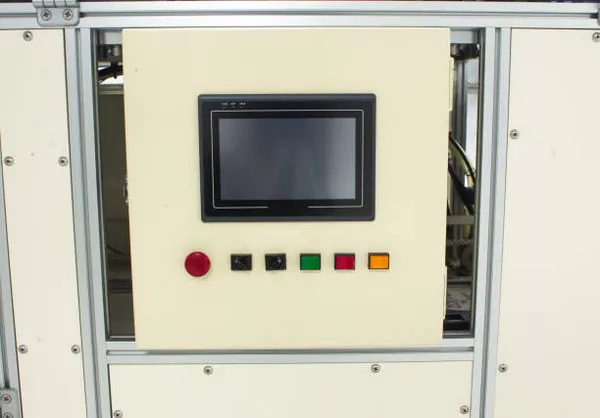Power outages can be disruptive, especially during extreme weather conditions when you rely on your oil furnace for heating. To ensure that your oil furnace continues to operate during a power outage, you’ll need a generator. However, selecting the right generator size is crucial to keep your furnace running efficiently and prevent potential damage. In this article, we will guide you through the process of determining the appropriate generator size for your oil furnace and address common questions related to this topic.
Why Do You Need a Generator for Your Oil Furnace?
Oil furnaces, like other heating systems, require electricity to operate essential components such as the blower motor, ignition system, and thermostat. During power outages, without a generator, your oil furnace won’t function, leaving you without heat in cold weather. A generator acts as a backup power source, ensuring your oil furnace continues to run, providing heat and maintaining your comfort and safety.
Calculating the Right Generator Size
Choosing the correct generator size for your oil furnace is essential to prevent overloading or underpowering your heating system. Here’s how you can calculate the appropriate generator size:
Determine the Furnace’s Wattage: Start by finding out the power consumption of your oil furnace. This information is typically available in the furnace’s user manual or on a nameplate located on the unit. The power requirement is usually measured in watts (W) or kilowatts (kW).
Consider Starting Surge Power: Oil furnaces often require a higher initial power surge to start the blower motor and ignition system. This surge can be up to three times the continuous power consumption. Ensure your generator can handle this starting surge without tripping its overload protection.
Add Other Essential Loads: If you plan to power other essential appliances or systems during an outage, such as lights, refrigerator, or a well pump, consider their wattage requirements and add them to the furnace’s power consumption.
Calculate the Total Load: Sum up the power requirements of your oil furnace and any additional essential loads. This total load will determine the minimum generator size you need to keep everything running smoothly during an outage.
Generator Size Chart for Common Oil Furnace Wattages
Here’s a rough guideline to help you select the right generator size based on the wattage of your oil furnace:
Furnace Wattage: 1,000W to 1,500W
Suggested Generator Size: 3,000W to 4,500W
Furnace Wattage: 2,000W to 3,000W
Suggested Generator Size: 4,500W to 6,500W
Furnace Wattage: 3,000W to 4,000W
Suggested Generator Size: 6,500W to 8,000W
Furnace Wattage: 4,000W to 5,000W
Suggested Generator Size: 8,000W to 10,000W
Furnace Wattage: 5,000W to 6,000W
Suggested Generator Size: 10,000W to 12,000W
Furnace Wattage: Over 6,000W
Suggested Generator Size: 12,000W or more
It’s important to note that these are general guidelines, and specific circumstances may require different considerations. Additionally, you should consult your generator’s user manual or manufacturer for precise information on its capacity and capabilities.
Common FAQs about Generator Sizing for Oil Furnaces
What happens if I use an undersized generator for my oil furnace?
Using an undersized generator can lead to several issues. If the generator is too small to handle the starting surge power required by your furnace, it may not start at all or may struggle to start, potentially causing damage to the furnace’s motor and electrical components. Additionally, running an undersized generator continuously at or near its maximum capacity can lead to overheating and decreased generator lifespan. It’s crucial to choose a generator with sufficient capacity to power your oil furnace comfortably.
Can I run other appliances alongside my oil furnace with the same generator?
Yes, you can run other essential appliances alongside your oil furnace using the same generator, but you must consider their combined power requirements. Make a list of all the appliances you want to power during an outage and calculate their total wattage. Ensure that the generator you choose has enough capacity to handle the combined load without exceeding its rated capacity.
Is it possible to use a smaller generator with a power management system for my oil furnace?
Yes, a power management system can help you make the most of a smaller generator. These systems prioritize which circuits receive power during an outage, allowing you to manage and distribute the available power more efficiently. However, it’s essential to consult with a professional electrician or generator expert to ensure your specific setup is compatible with a power management system.
What are the advantages of using an appropriately sized generator for my oil furnace?
Using the right-sized generator for your oil furnace offers several advantages. Firstly, it ensures that your furnace starts reliably during an outage, preventing discomfort and potential damage. Secondly, it allows you to power other essential appliances and systems simultaneously, maintaining your overall comfort and safety. Lastly, an appropriately sized generator operates more efficiently, reducing fuel consumption and minimizing wear and tear on the generator itself.
Can I install a generator for my oil furnace myself, or do I need professional help?
While some homeowners with electrical knowledge may choose to install a generator themselves, it is generally recommended to seek professional assistance. Generator installation involves working with electrical wiring and ensuring proper safety measures are in place. An experienced electrician or generator technician can assess your specific needs, install the generator correctly, and ensure that it complies with local building codes and safety standards.
Conclusion
Selecting the right generator size for your oil furnace is crucial to ensure that your heating system operates efficiently and reliably during power outages. By calculating your furnace’s wattage, considering starting surge power, and accounting for other essential loads, you can determine the minimum generator size you need. Remember that it’s always advisable to consult with professionals, such as electricians or generator experts, to ensure a safe and effective installation. With the appropriate generator in place, you can enjoy uninterrupted heating and peace of mind during adverse weather conditions or power disruptions.


